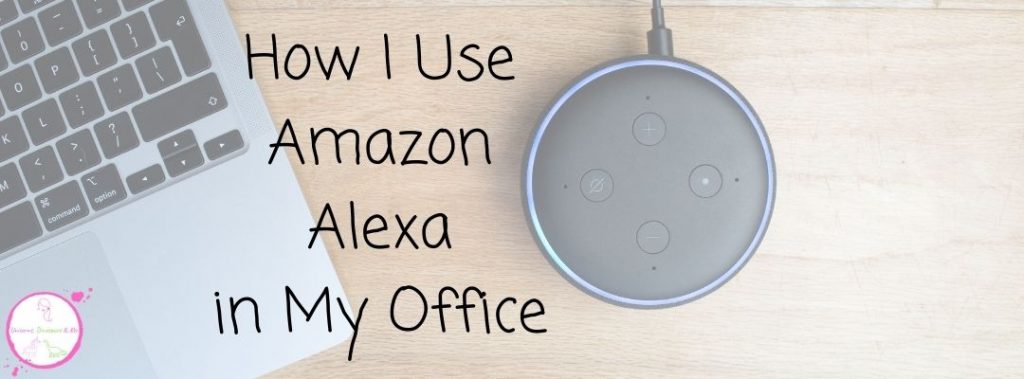When you are a small business owner then you will inevitably have to write things for your business. Even if you hate writing you are going to have to do it at some point before you can outsource but the chances are, even when you are outsourcing the bulk of your business writing, you will still have to do some writing.
I am going to take you through the key points to remember when you are writing your business basics.
Knowing your ideal client is vital. Have you ever noticed when you take part in a free challenge, at some point (usually on the first day) you will do an activity on identifying your ideal client? There is no coincidence why they all do this, it is not some unwritten rule of running a challenge, it is just the key to everything.
Knowing your Ideal Client

If you know exactly who you are talking to then writing anything for your business is easy. I go into this in much more detail here but it’s such an important part of writing for your business that it needs mentioning again.
The key things to remember are:
- An ideal client is one person, a target market is too broad
- An ideal client can be real or made up
- You will know what their challenges and pain points are
- You will know what their interests are
- You will know virtually every detail about them
When you are working out who your ideal client is you will need to discover what their pain points are and what their objections are. What do they need help with? Why might they say no to you? We will come back to these questions shortly.
If you need help to work out who your ideal client is then why not book an Ideal Client Power Hour with me.
Website
A website will be the shopfront to your business and one of the first points of call the potential clients will make when they are researching you. Even if they discover you on social media they will end up on your website, ideally because that is where you direct them to through your marketing but even if you do not, they will go to your website because that is human nature. We are inquisitive beings, and we like to find things out about people before we commit to parting with our hard-earned cash. This knowledge will be a guiding influence over the information you have on your website, as with everything you write for your business, knowing your ideal client is key. You will need to provide the information that they will be seeking.
To get you started, your website will need these key pages as a minimum:
- Home. This is the section to introduce the business, what does it do? What are its aims? What is its ethos? You do not necessarily have to answer all these questions but give an overview of the business and not yourself, that comes next.
- About. This is where you can tell your story. Essentially people are nosy as we like to know, like and trust a small business before we buy from them. Give them a little bit of information about yourself, your background, how you came to be doing what you are doing and why you love it so much.
- Products/Services. This is where you will need to showcase your wares, if possible, provide quality images of your products or the results of your service. For example, if you are a cleaner, a makeup artist or a gardener this will be straight forward as you could show before and after photos. If you are a copywriter, an accountant, or a coach, this is somewhat more difficult and this is where you will need to get a little creative. Perhaps you could use photos of you “in action” on the phone, typing, making notes, or sorting through a pile of receipts. You will also need to provide descriptions of your product or service that take your client on a journey from being interested in what you are offering to them feeling that they NEED what you are offering.
- Contact. How will people know where to find you if they need to visit you if you do not give this information. If you are in a difficult location, you may wish to consider proving directions or incorporating a route finder onto this page. If people do not need to visit you then you still need to tell them how and when they should contact you by providing opening hours and details of your preferred methods of contact. Make sure you have more than one as most people prefer one method over another, personally I prefer email as then I can refer to it if needed and I can pick it up when it is convenient to me, so it does not interrupt the flow of my work. Others prefer the more personal method of a phone call or an incredibly current video call.
- Reviews/Testimonials. A chance to let others speak about your work. You can talk about your products or services until you are blue in the face but having genuine reviews from real clients is absolute gold. You can easily get some reviews to get you started before you take on any paying customers by offering a skills swap. You can offer someone a sample of your work in exchange for a review and who knows, this may lead to further paid work, either from them or from one of their contacts.
Social Media
When you are using social media for your business you will need to make sure that you have optimised your profiles for selling. The idea is to direct your ideal client to the place where you can sell to them, this might be a Facebook group, your website or somewhere like Etsy. This is easily done by making a few adjustments to your profile. It is important to bear in mind that if you are in Facebook networking groups where your ideal client is, you are likely to be in them as yourself and not as your business. What I mean is that it will be your profile that is granted entry to the group and not your business page.
On Facebook, you can add several things to your profile to point people towards your business. Underneath your profile picture, there is a short bio section so I would suggest writing a few phrases here that relate to what you do, adding a few emojis as well will make it more eye-catching.

You should also add links to things like your page, your group, your website, your email address, or other contact details. Make it easy for people to find you.
Further down your profile, you can have a featured section. This is where you can highlight the things that you want people to see, this again could be a link to your page or group, it can also be images or posts that you want to keep at the front of people’s minds.
It is important to remember a few key things:
- A profile, a page and a group are different things. Your profile is you; it is what you set up when you first join Facebook. A page is what you can set up for your business and will be where you can add things like opening hours. A group is a community of people with a common interest such as a particular breed of dog or a networking group
- The organic reach on pages is incredibly low but it is still worth having one as it gives your business more authenticity. You will also need to have a page if you plan to run Facebook ads
- You cannot ‘sell’ on your Facebook profile. You can however share your love of your products or services there. Save your branded Canva posts for your page and just put the basic content of them on your profile
- A group will be a brilliant place to build a community of your ideal clients however do not just post sales posts all the time as nobody will pay attention. You need to build relationships with the members of your group
Instagram gives you a short bio where you can write a little about yourself. As with your Facebook bio you want to keep this short and snappy, try breaking it up with emojis. You will need to be creative with your wording and emoji usage as you are limited on characters and some emojis take up three characters!

You also have the opportunity to have one and only one link in your bio that people can click on. Think carefully about how you set this up as you are only allowed one link. A lot of people use third-party applications such as Linktree to allow them to have one link that is actually multiple links. I would not advise this as every so often the links stop working for a few hours which is not ideal or worse Instagram my block them. They have been known to block third-party applications in the past with no warning. My advice would be to have an additional page on your website called links. This means you can add that web address to your Instagram bio and then when people get to the page you can have additional links to the places you may want visitors to go. These links can even be to different parts of your website such as your blog page or your products/services page.
Blogging
Many business owners do not blog for a variety of reasons, they do not like it, they do not have the time, they do not know what to write about, they do not know how to write a blog, they do not know why they should blog. The list goes on. There are two main reasons to blog for your business.

The first reason you should be blogging is that it is the easiest way to add content to your website. Search engines like new content to be added to websites because it lets them know that the site is still active, and it will therefore be more likely to bring these sites up in searches.
The topics you cover in your blogs will also help search engines to find your site. After you have spent all that time building your website, you want people to visit it and getting it found on search engines will do that.
The second reason to include a blog on your site is to give value to your ideal clients. This is an opportunity for you to showcase your knowledge and experience whilst giving them nuggets of useful information. A blog is an excellent way for you to build that all-important relationship with your ideal client.
We have all heard that people buy from people so blogging lets you showcase your personality as well as your business. You do not have to stick to blogging about topics exclusively related to your business. Blog about things that your ideal client will find interesting, I once blogged about a trip to Butlin’s that I took a week after they re-opened following the first lockdown. At the time it was an extremely relevant topic to talk about because nobody had experienced a socially distanced Butlin’s break before. If you decide that you need to outsource your blogging, then get in touch with me.
This is just a brief overview of the basics that you are likely to need to write for your business. If you feel that you need more assistance with this then you can either purchase my Back-to-Basics Workbook or contact me to arrange more tailored support.



